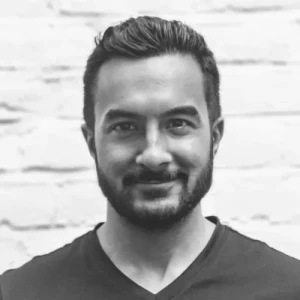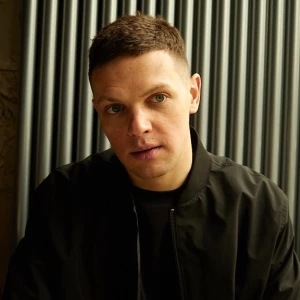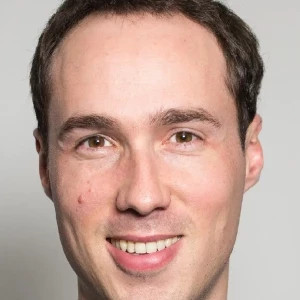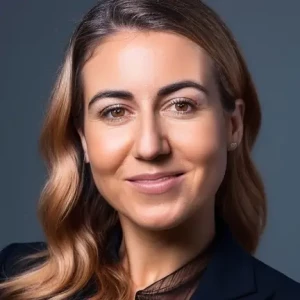Hello everyone, I am working in a management consulting firm and I want to know how to answer when an interviewer asks me “tell me about the projects you have worked on"? What is the right way, structured way of answering this question. Do we relate it with a consulting framework or not? What should be the flow of answering this question maintaining the confidentiality needed. Kindly explain it with examples.
How do I explain my projects in an interview


When an interviewer asks you to tell them about the projects you have worked on, it's important to provide a structured and concise response while maintaining confidentiality. Here's a suggested flow for answering this question:
Start with a brief overview: Begin by giving a high-level overview of the project, including the industry, client, and objective. For example, "One of the projects I worked on was for a leading telecommunications company in the Middle East. The objective was to develop a growth strategy for their mobile data services."
Describe the situation: Provide context about the initial situation or challenge the client was facing. Be careful not to disclose any sensitive information. For example, "The client was experiencing declining market share in the mobile data segment due to intense competition and changing customer preferences."
Explain your role and responsibilities: Clearly articulate your role on the project and the specific responsibilities you had. This demonstrates your contribution and expertise. For example, "As a member of the strategy team, I was responsible for conducting market research, analyzing industry trends, and identifying growth opportunities."
Discuss the actions you took: Highlight the specific actions you took to address the client's challenge. Focus on the key strategies, frameworks, or methodologies you applied. However, avoid disclosing any proprietary information. For example, "To develop the growth strategy, I conducted in-depth competitor analysis, performed customer segmentation, and conducted interviews with industry experts. I also utilized frameworks such as Porter's Five Forces and SWOT analysis to assess the market dynamics and identify potential areas of differentiation."
Share the results and impact: Summarize the outcomes and impact of the project, highlighting any tangible results or achievements. Focus on the value you delivered to the client. For example, "As a result of our recommendations, the client was able to successfully launch new data packages tailored to different customer segments, resulting in a 15% increase in market share within six months."
Remember to maintain confidentiality throughout your response by avoiding the use of specific client names, sensitive data, or proprietary information. It's also important to practice your response beforehand to ensure a clear and concise delivery.
If you would like more personalized guidance or assistance in preparing for consulting interviews, I offer coaching services specifically tailored to job seekers looking to break into the consulting industry

Hi there,
My response is going to be based on my personal experience and may or may not be useful for you or others reading this.
I had some successful interviews in industry post-exiting McKinsey and I never prepared my responses to such questions in line with any framework. The reason being two-fold:
- NO NEED: My time at McKinsey helped me become a very comfortable and effective communicator who can tailor responses on the spot, depending on what the situation calls for. Being overly prepared typically hurt my ability to communicate instead of helping it. Especially because nobody ever asked me “tell me about this project x on your resume”. However, that's a very subjective experience and it may be very different for other people.
- CONSTRAINT: I was typically asked about projects, or brought them up myself, in the context of discussing a specific topic e.g. change management from a leader's perspective. In that case, you don't want to give a rehearsed answer for project x because it's limited in its impact. Instead, you want to pick relevant bits and pieces from your various experiences and reassemble them in a way that portrays you as an experienced practitioner in this field.
BOTTOM-LINE: Ask yourself whether you really need to prepare this in such a systematic way, which may well be, or whether you have indeed developed your communication skills to the extent where such preparation becomes superfluous.
Hope this helps a bit. Best of luck!
Moritz
_______________________________________________________
>> Need a specialized McKinsey coach & mentor?
See my full profile
>> Need real McKinsey cases?
Zero Carbon Mine (hard)
Car Convenience (Intermediate + brand new)

Hi there,
Ultimately, the right way needs to be spoken. As in, I need to actually hear you say it!
Please don't generically do STAR/SCAR methodology as you see some other coaches recommending.
Why?
They are NOT asking for a story.
Rather, answer like a normal human being!
Summarize the projects. If you can categorize and group them, give an overview of what each was about, and aim to highlight the key skills required/responsibilities, then you've done well.
The answer is inherently going to be different for each person though….ultimately, be clear/concise, and put yourself in a good light! Of course, maintain the confidentiality required.
Happy to help you craft your specific answer!

Hi,
Be prepared to tell about your projects in greater detail if asked to elaborate on a certain point, e.g. what were the names of the participants, the exact words you or they used getting getting a point across, the actual motivation you had taking a certain course of action etc.
Ideally, if you prepare three types of FIT stories:
1. Mini FIT: a short overview or a sales pitch of your achievements (20-30 seconds per story);
2. Standard PEI - around 2 minutes per story;
3. Expanded FIT - a 4-5 mines per story for a deep dive into your experiences with the exact names, reasoning, thoughts, as described above.
Good luck!
Nick

Hi,
One good option is to use the SCAR approach:
S: Situation, context → 10% of total duration
C: Complication → 20% of total duration
A: Action & thinking → 50% of total duration
R: Results → 20% of total duration
Then to keep confidentiality, juste name the industry and the function.
Cheers,

Hi!
Yes, confidentiality is important. So refrain from mentioning client names.
In terms of structure, start by discussing the context of the project, then the main problem you were working on, then the actions that you individually took (basically try to identify your individual contribution) and then the result. Lastly, it's always good to identify 1-2 learnings you had from this experience.
Good luck!
Cristian
———————————————
Practicing for interviews? Check out my latest case based on a first-round MBB interview >>> CodeWave

Hi there,
You received some great feedback already from other coaches.
One thing I would add is to be observant of your interviewer early on the interview. This is coming from actual experience passing my 2nd round of interview at McKinsey. Some interviewers might prefer more structure vs others who might come across might laid back (they say to not fall into that but I think the human factor is essential). Use your intuition to your best.
Cheers,
Aude Augias

Just as you would do in a normal conversation. Make sure to give some context, mention industries, your role and the impact achieved. Use direct communication without loosing yourself in details if you are not asked to do it.
Best,
Alberto
—
Check out my latest case based on a real MBB interview: Sierra Springs
















